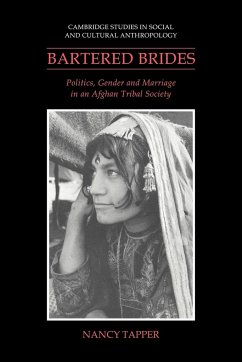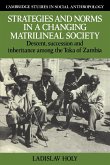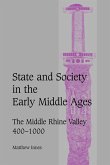A detailed study of marriage among the Maduzai, a tribal society in Afghan Turkistan.
Bartered Brides is a detailed study of marriage among the Maduzai, a tribal society in Afghan Turkistan. It is the first study of the area which looks in depth at both the domestic aspects of marriage and its relation to the productive and reproductive activities of women, as well as marriage as a means of managing political and economic conflict and competition. The fieldwork was carried out in the early 1970s before the 1978 coup and Soviet invasion. In this respect the book offers a unique account of a world that has disappeared. Nancy Tapper presents both male and female perspectives, detailed case studies and historical and statistical material. As an ethnographic and historical record, Bartered Brides breaks new ground in the study of Islam, the Middle East and South-west Asia. As the most detailed and extensive discussion of a Middle Eastern marriage system to date, it contributes to wider anthropological studies of marriage, politics and gender.
Review quote:
'- as a source of knowledge about marriage strategies and the many conflicts which these strategies obviously cause, it is informative and rich in ethnography - impressive reading.' Nomadic Peoples
Table of contents:
Acknowledgements; Part I. Contexts: 1. Personal background; 2. Comparative perspectives on marriage; 3. Regional background - the Durrani of Saripul; Part II. Social Groups and Marriage: 4. Patriliny, gender and endogamy; 5. The Maduzai subtribe; 6. Household production and reproduction; Part III. Ideologies of equality and inequality: 7. Brideprice and direct exchange; 8. Rituals of marriage; 9. Marriage choice; Part IV. Case Studies and Structural Implications: 10. The power at home; 11. The marriages of Hajji Adam's descendants; 12. Durrani marriage - conclusions; Notes; References; Index.
Hinweis: Dieser Artikel kann nur an eine deutsche Lieferadresse ausgeliefert werden.
Bartered Brides is a detailed study of marriage among the Maduzai, a tribal society in Afghan Turkistan. It is the first study of the area which looks in depth at both the domestic aspects of marriage and its relation to the productive and reproductive activities of women, as well as marriage as a means of managing political and economic conflict and competition. The fieldwork was carried out in the early 1970s before the 1978 coup and Soviet invasion. In this respect the book offers a unique account of a world that has disappeared. Nancy Tapper presents both male and female perspectives, detailed case studies and historical and statistical material. As an ethnographic and historical record, Bartered Brides breaks new ground in the study of Islam, the Middle East and South-west Asia. As the most detailed and extensive discussion of a Middle Eastern marriage system to date, it contributes to wider anthropological studies of marriage, politics and gender.
Review quote:
'- as a source of knowledge about marriage strategies and the many conflicts which these strategies obviously cause, it is informative and rich in ethnography - impressive reading.' Nomadic Peoples
Table of contents:
Acknowledgements; Part I. Contexts: 1. Personal background; 2. Comparative perspectives on marriage; 3. Regional background - the Durrani of Saripul; Part II. Social Groups and Marriage: 4. Patriliny, gender and endogamy; 5. The Maduzai subtribe; 6. Household production and reproduction; Part III. Ideologies of equality and inequality: 7. Brideprice and direct exchange; 8. Rituals of marriage; 9. Marriage choice; Part IV. Case Studies and Structural Implications: 10. The power at home; 11. The marriages of Hajji Adam's descendants; 12. Durrani marriage - conclusions; Notes; References; Index.
Hinweis: Dieser Artikel kann nur an eine deutsche Lieferadresse ausgeliefert werden.









